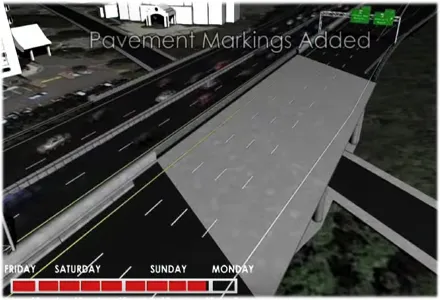Vehicle GPS provider TomTom is revealing details of a study into traffic congestion it had carried out across Europe. This quarterly Congestion Index involves studies of 31 major European cities with populations of over 800,000. According to the study, Poland’s capital Warsaw suffers the worst traffic congestion of any European city. For the UK, the Leeds-Bradford are has come out as the most congested area. Drivers in the Yorkshire conurbation spend an average 86hours/year stuck in traffic jams according t
July 12, 2012
Read time: 2 mins
Vehicle GPS provider 3972 TomTom is revealing details of a study into traffic congestion it had carried out across Europe. This quarterly Congestion Index involves studies of 31 major European cities with populations of over 800,000. According to the study, Poland’s capital Warsaw suffers the worst traffic congestion of any European city. For the UK, the Leeds-Bradford are has come out as the most congested area. Drivers in the Yorkshire conurbation spend an average 86hours/year stuck in traffic jams according to the study. The Index is based on real travel time data captured by vehicles driving the entire European road network and compiled from five trillion anonymous data measurements on TomTom's servers.
Drivers in the Leeds-Bradford area endure journey times up to 63% longer than normal in morning peak periods and 60% longer in the evening rush-hour. Overall, congestion in the Leeds-Bradford area slows journey times down by an average of 28%. By comparison in UK capital London traffic jams delay journeys by an average of 27% and up to 50% in the evening rush-hour, while drivers spend an average 74 hours/year stuck in traffic jams. The two Yorkshire areas have suffered a 5% increase in congestion since 2011, the biggest of anywhere in Europe. Drivers there face a delay of 36 minutes for every hour they drive in peak periods. Leeds-Bradford is now seventh in a table of most traffic clogged cities across Europe, up from 19th in 2011.
Drivers in Birmingham spend an average 73 hours/year stuck in traffic jams. Traffic in the West Midlands city is delayed by an average of 21% because of congestion with delays of up to 28 minutes/hour during peak periods. Birmingham has risen from 23rd in the TomTom congestion ranking last year to 19th in 2012. The worst days for congestion are Tuesday and Thursday in Leeds-Bradford and Birmingham, while Mondays and Thursdays are worst in London.
Drivers in the Leeds-Bradford area endure journey times up to 63% longer than normal in morning peak periods and 60% longer in the evening rush-hour. Overall, congestion in the Leeds-Bradford area slows journey times down by an average of 28%. By comparison in UK capital London traffic jams delay journeys by an average of 27% and up to 50% in the evening rush-hour, while drivers spend an average 74 hours/year stuck in traffic jams. The two Yorkshire areas have suffered a 5% increase in congestion since 2011, the biggest of anywhere in Europe. Drivers there face a delay of 36 minutes for every hour they drive in peak periods. Leeds-Bradford is now seventh in a table of most traffic clogged cities across Europe, up from 19th in 2011.
Drivers in Birmingham spend an average 73 hours/year stuck in traffic jams. Traffic in the West Midlands city is delayed by an average of 21% because of congestion with delays of up to 28 minutes/hour during peak periods. Birmingham has risen from 23rd in the TomTom congestion ranking last year to 19th in 2012. The worst days for congestion are Tuesday and Thursday in Leeds-Bradford and Birmingham, while Mondays and Thursdays are worst in London.






